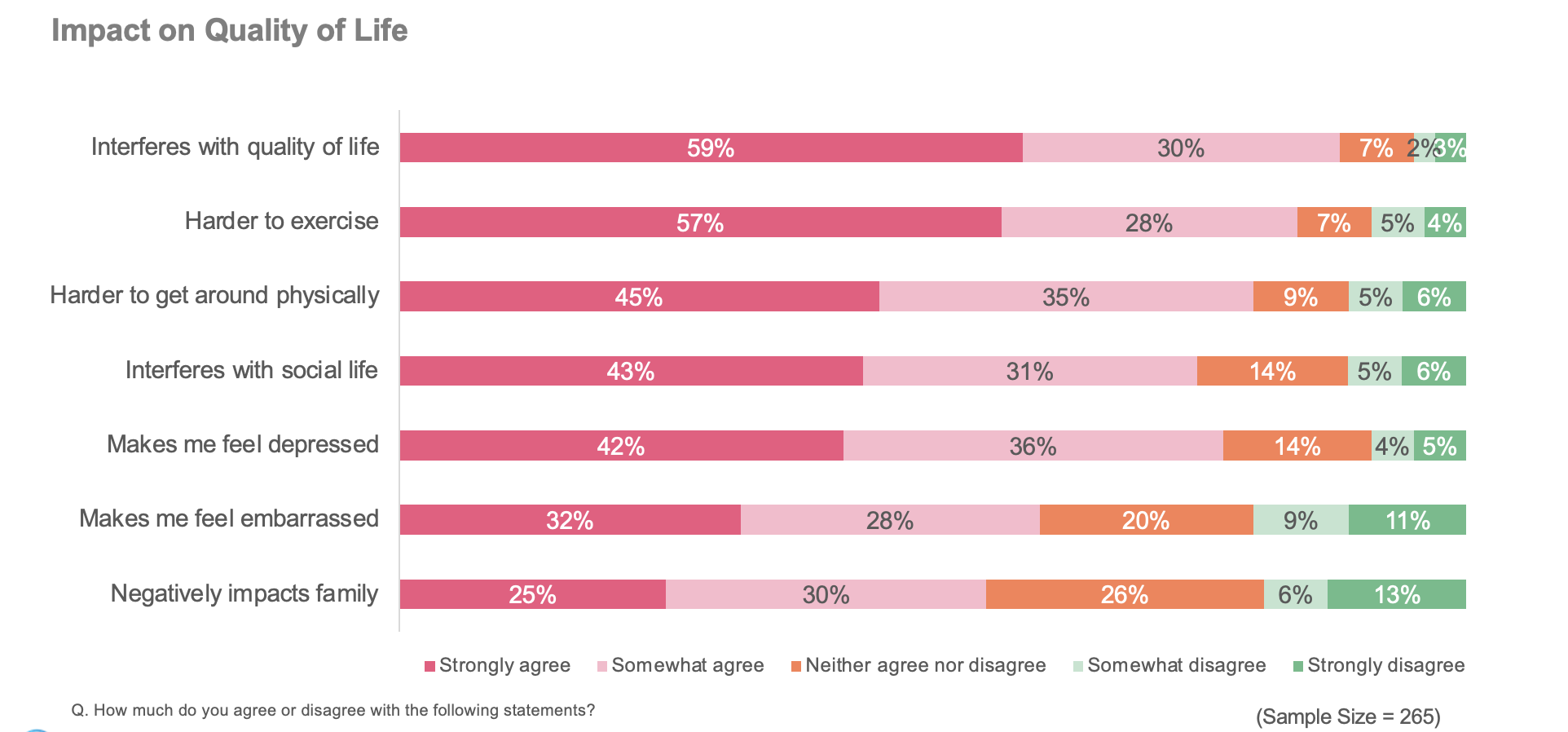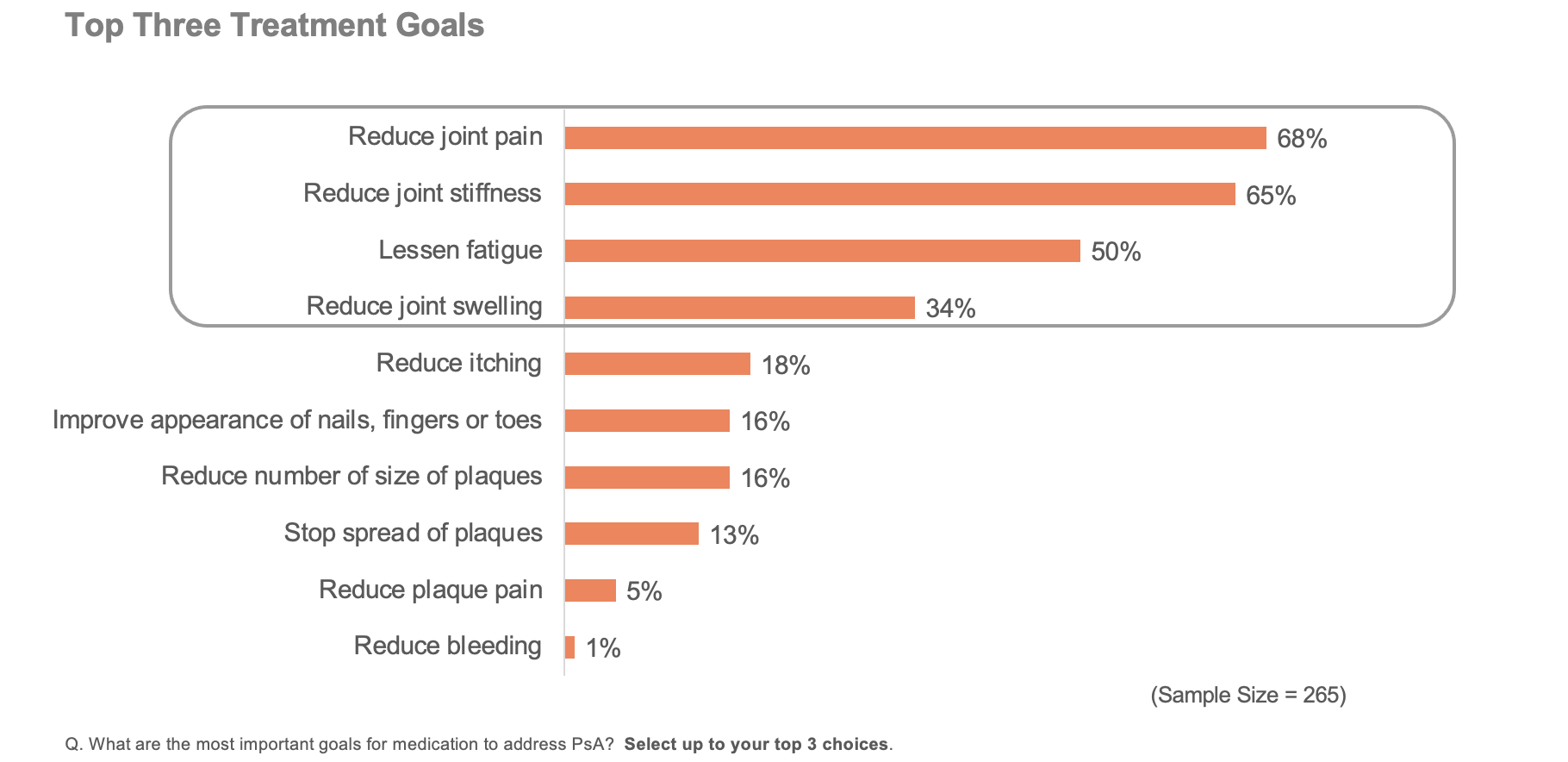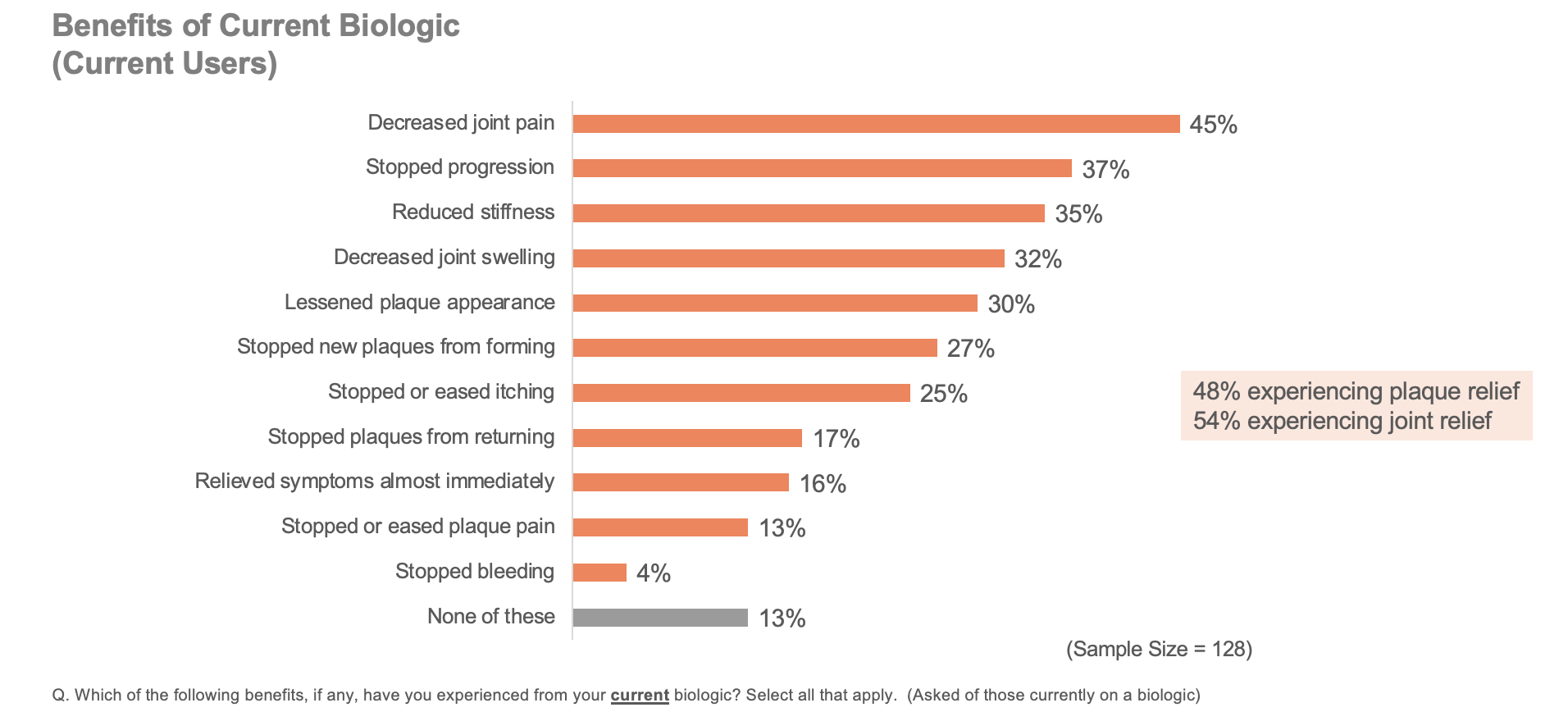Session Information
Session Type: Poster Session B
Session Time: 10:30AM-12:30PM
Background/Purpose: People living with psoriatic arthritis often struggle with the physical and mental health toll. Understanding the holistic impact of psoriatic arthritis is crucial to treating patients and enabling them to live more fulfilling lives. Purpose was to understand the impact of psoriatic arthritis (PsA) and desired treatment outcomes.
Methods: In August 2023, an email invitation to a 34-question online survey was sent to US members of MyPsoriasisTeam.
Results: In total, 265 respondents with PsA were included in the study. These respondents reported that PsA has a negative impact on overall quality of life (89%) and interferes with social life (74%). The physical toll manifested in difficulty exercising (83%) and challenges getting around (80%). The emotional toll of psoriatic arthritis was evident with 78% feeling depressed. Top symptoms include joint pain (92%), morning stiffness (90%), stiff joints (89%), and fatigue (89%). Many continue to experience psoriasis related symptoms such as itching (70%) and red patches (57%). Top three treatment goals were consistent with symptom prevalence, including reducing joint pain (68%), joint stiffness (65%), and lessening fatigue (50%). The majority (88%) are currently on some type of treatment for PsA, including biologics (48%) or oral steroids (36%). Despite the fact that the large majority of respondents on biologics have benefited from their respective biologic treatment (87%), there remain obstacles to getting on a biologic among non-users that would need to be overcome, including concerns about side effects (56%), impact on immune system (53%), and long-term safety (49%). The research also found that 41% of the respondents who indicated they only have psoriasis (n = 98) were showing signs of potential progression to psoriatic arthritis and may be underdiagnosed. Yet only 39% of psoriasis patients have discussed potential for progression with their dermatologist or other HCP.
Conclusion: Understanding the quality-of-life impact of psoriatic arthritis along with desired outcomes can help rheumatologists develop the most effective approach to treating patients. This includes listening to patient concerns about getting on specific treatments, helping them weigh the concerns against benefits and educating them on treatments to slow progression.
To cite this abstract in AMA style:
Luce E, schneider B, cronin D. Patient Reported Impact of Psoriatic Arthritis and Desired Treatment Outcomes [abstract]. Arthritis Rheumatol. 2024; 76 (suppl 9). https://acrabstracts.org/abstract/patient-reported-impact-of-psoriatic-arthritis-and-desired-treatment-outcomes/. Accessed .« Back to ACR Convergence 2024
ACR Meeting Abstracts - https://acrabstracts.org/abstract/patient-reported-impact-of-psoriatic-arthritis-and-desired-treatment-outcomes/



